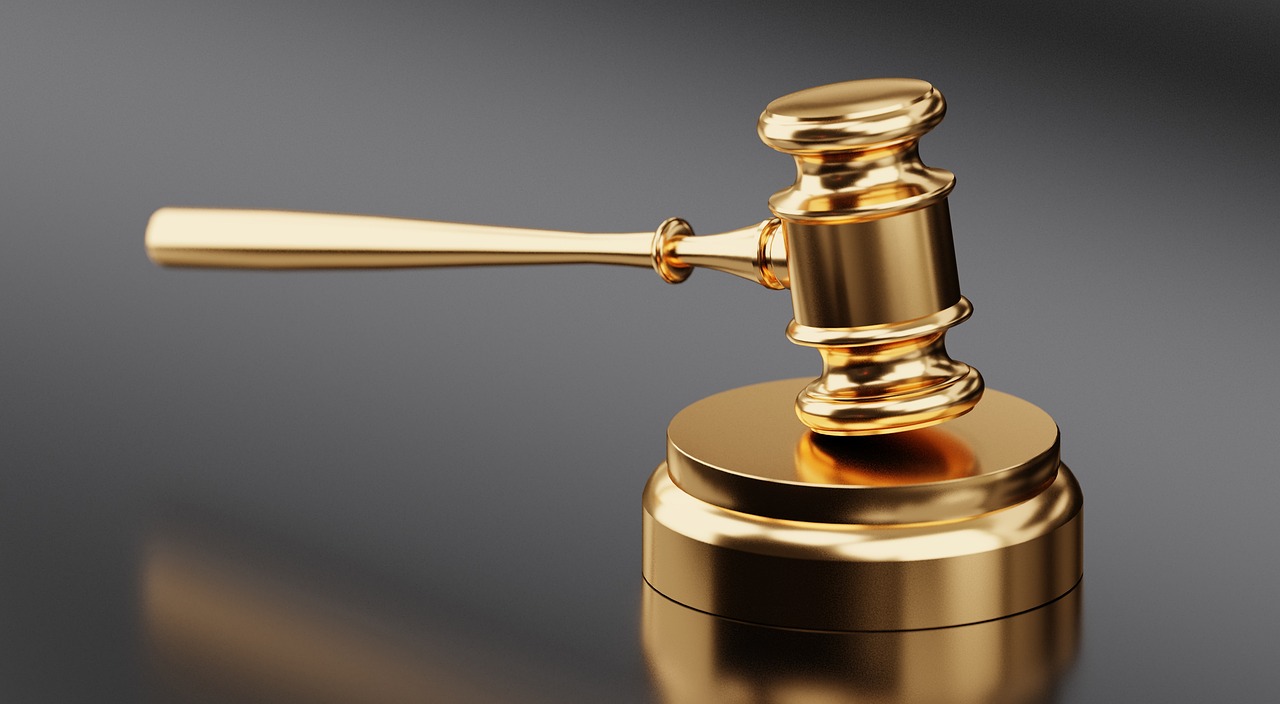Have you recently been involved in a car accident and find yourself questioning whether or not you need a car accident lawyer? We understand how overwhelming and confusing this situation can be, which is why we’re here to help. In this article, we will provide you with essential information that will help you determine if hiring a car accident lawyer is the right decision for you. By the end of this article, you’ll have a clear understanding of the benefits and importance of having legal representation during these challenging times. So let’s dive in and explore whether or not you need a car accident lawyer!
When to Consider Hiring a Car Accident Lawyer
Car accidents can be incredibly stressful and overwhelming experiences. In the aftermath of an accident, you may be dealing with significant injuries or expensive medical bills. If you find yourself in this situation, it may be time to consider hiring a car accident lawyer. Here’s when it’s important to seek legal representation:
Significant Injuries or Expenses
If you or any passengers in your vehicle have suffered significant injuries in the accident, it is crucial to consult with a car accident lawyer. They can help you navigate through the complex process of seeking compensation for your medical expenses, rehabilitation costs, and any future medical needs that may arise. A car accident lawyer will work to maximize the compensation you receive, ensuring that your financial future is protected.
Disputed Liability
In some cases, determining who is at fault for the accident can become a contentious issue. If the other party involved is claiming that you are responsible or if liability is being disputed, it is wise to hire a car accident lawyer to handle the legal complexities. They will gather evidence, interview witnesses, and work with accident reconstruction experts to build a strong case in your favor.
Complex Legal Rules
The legal landscape surrounding car accidents can be intricate, with various rules and regulations differing from state to state. If you find it challenging to understand these complex legal rules and how they apply to your case, it is advisable to seek legal counsel. A car accident lawyer will have the expertise and knowledge to navigate through the intricate legalities, ensuring that you are fully aware of your rights and options.
Insurance Company Tactics
Dealing with insurance companies can be overwhelming, especially when they employ tactics that aim to reduce or deny your claim. Hiring a car accident lawyer can level the playing field, as they are well-versed in insurance company tactics. They will protect your rights and negotiate with the insurance company on your behalf, ensuring that you receive fair compensation for your injuries, damages, and other losses.
Understanding the Benefits of Hiring a Car Accident Lawyer
Hiring a car accident lawyer offers numerous benefits that can greatly impact the outcome of your case. Here are a few advantages of seeking legal representation:
Legal Expertise and Guidance
Car accident lawyers have specialized knowledge and expertise in handling similar cases. They can provide you with expert legal guidance, explaining the intricacies of the law and how they apply to your situation. They will ensure that all legal requirements are met, protecting your rights and best interests throughout the entire process.
Investigation and Gathering Evidence
A crucial aspect of any car accident case is gathering evidence to support your claim. Car accident lawyers have the resources and experience necessary to conduct thorough investigations. They will gather witness statements, obtain accident reports, review medical records, and collect any other evidence that can strengthen your case. This comprehensive approach maximizes your chances of a successful outcome.
Negotiating with Insurance Companies
Navigating the negotiation process with insurance companies can be challenging, as they often employ tactics to minimize your compensation. Car accident lawyers are skilled negotiators who will work tirelessly to secure a fair settlement on your behalf. They will handle all communications with the insurance company, ensuring that your rights are protected and that you receive the compensation you deserve.
Maximizing Compensation
One of the primary benefits of hiring a car accident lawyer is their ability to maximize the compensation you receive. They will carefully calculate all your damages, including medical expenses, lost wages, pain and suffering, and property damage. Car accident lawyers understand the complexities of valuing your claim and will fight for your right to fair compensation.

Steps to Take Before Hiring a Car Accident Lawyer
Before hiring a car accident lawyer, there are several essential steps you should take to ensure a smooth legal process. These steps will help you gather necessary information and set the foundation for your case. Here’s what you should do:
Assess the Severity of Injuries
First and foremost, assess the severity of your injuries and seek medical attention immediately. Not only is this essential for your health, but documenting your injuries will serve as crucial evidence for your case. Follow through with any recommended treatments and keep detailed records of all medical expenses incurred.
Gather Relevant Documents and Information
Collect all relevant documents and information related to the accident. This includes the police report, any witness statements, photographs of the accident scene, and your medical records. These documents will provide vital evidence to support your claim and assist your car accident lawyer in building a strong case on your behalf.
Contact Insurance Company
Notify your insurance company about the accident as soon as possible. Cooperate with them and provide the necessary information they require. However, it is essential to remember that you are not obligated to provide a recorded statement or accept any settlement offers without consulting with a car accident lawyer first. Let your car accident lawyer handle all communication with the insurance company moving forward.
Consult with Medical Professionals
Consult with medical professionals who specialize in car accident injuries. They will assess and document the full extent of your injuries, recommend appropriate treatments, and provide ongoing care. Be sure to follow their instructions diligently and attend all scheduled appointments. This will not only aid in your recovery but also contribute to the strength of your case.
Finding the Right Car Accident Lawyer for Your Case
Choosing the right car accident lawyer is crucial for the success of your case. When looking for legal representation, consider the following factors to find the best lawyer for your individual needs:
Experience and Expertise
Look for a car accident lawyer who has extensive experience handling similar cases. A lawyer with specialized knowledge in car accident law will have a deep understanding of the legal complexities involved and possess the necessary expertise to handle your case successfully.
Reputation and Track Record
Research the reputation and track record of prospective car accident lawyers. Read client reviews, check their success rate in previous cases, and inquire about their trial experience. A lawyer with a positive reputation and a track record of success is more likely to deliver favorable results for your case.
Good Communication Skills
Effective communication is crucial between you and your car accident lawyer. Look for a lawyer who actively listens, communicates clearly, and keeps you informed about your case’s progress. A lawyer who is responsive and readily available to answer your questions will provide you with peace of mind throughout the legal process.
Comfort and Trust
Ultimately, trust your instincts and choose a car accident lawyer with whom you feel comfortable. A strong attorney-client relationship is essential as you navigate the complexities of your case together. Choose a lawyer who takes the time to understand your concerns, addresses your questions, and genuinely cares about your well-being.

Understanding the Legal Process in a Car Accident Case
Navigating the legal process after a car accident can be complex and unfamiliar territory for most individuals. Familiarize yourself with the various stages involved to better understand what to expect as your case progresses:
Filing a Complaint or Lawsuit
If a fair settlement cannot be reached with the insurance company, your car accident lawyer may choose to file a complaint or lawsuit. This legal document outlines the allegations against the defendant, detailing how they were negligent and caused your injuries and damages. The defendant must respond to the complaint within a specific timeframe.
Discovery Phase
During the discovery phase, both parties exchange relevant information and evidence to build their cases. This may involve written interrogatories, depositions, and requests for documents. Your car accident lawyer will guide you through this phase, ensuring all necessary evidence is collected and reviewed.
Settlement Negotiation
Settlement negotiation is a common phase in car accident cases. Your car accident lawyer will negotiate with the defendant’s insurance company, striving to reach a fair settlement that adequately compensates you for your injuries and losses. If both parties agree on a settlement amount, the case can be resolved without proceeding to trial.
Trial or Mediation
If a settlement cannot be reached through negotiation, your car accident case may proceed to trial. Your lawyer will present your case in court, including opening and closing statements, examination of witnesses, and presentation of evidence. Alternatively, mediation may be pursued, where both parties work with a neutral third party to reach a settlement agreement.
Determining Fault in a Car Accident
Determining fault in a car accident is crucial for establishing liability and seeking appropriate compensation. Several factors are considered when determining fault:
Negligence and Standard of Care
Negligence refers to a driver’s failure to exercise reasonable care while operating a vehicle. To establish fault, it must be shown that the at-fault driver breached their duty of care and that this breach directly caused the accident and resulting injuries.
Evidence and Witnesses
Evidence and witness testimony play a significant role in determining fault. Critical evidence includes photographs of the accident scene, witness statements, police reports, and any available video footage. Witnesses who observed the accident firsthand can provide valuable insight into the events leading up to the collision.
Police Reports and Expert Testimony
Police reports are objective records that often contain crucial information regarding the accident and its causes. They can help establish fault and provide important details that support your claim. In some cases, expert testimony from accident reconstruction specialists may be necessary to determine fault accurately.
Comparative Fault
In some states, comparative fault laws apply, which means that fault can be assigned to multiple parties involved in the accident. If you are found partially at fault, your compensation may be reduced accordingly. However, even if you are partly responsible, you may still be eligible to receive compensation, depending on the laws in your state.
Dealing with Insurance Companies in a Car Accident Claim
Dealing with insurance companies can be a challenging and frustrating process. Understanding how the insurance claim process works and being aware of common insurance company tactics can help you protect your rights and navigate the claim effectively:
Insurance Claim Process
The insurance claim process typically begins by notifying your insurance company about the accident. You will need to provide them with relevant details, including information about the other party involved. The insurance company will investigate the claim, assess the damages and injuries, and determine liability.
Common Tactics of Insurance Companies
Insurance companies may employ various tactics to minimize your claim or deny it outright. These tactics can include delaying investigations, downplaying your injuries, or using recorded statements against you. Be cautious when interacting with insurance representatives and consult with your car accident lawyer before making any statements or accepting settlement offers.
Handling Denied or Lowball Offers
If your claim is denied or the insurance company presents a lowball settlement offer, it is crucial not to accept it without consulting with your car accident lawyer. They can assess the offer’s fairness and negotiate on your behalf to secure a settlement that meets your needs and adequately compensates you for your injuries and losses.
Understanding Policy Limits
Insurance policies have limits on the amount of compensation that can be awarded for certain types of damages. Familiarize yourself with the policy limits involved in your case to gain a better understanding of the potential compensation you may receive. Your car accident lawyer can guide you through this process and help you navigate any potential limits.
Calculating Compensation in a Car Accident Case
Several factors are taken into account when calculating compensation in a car accident case. A skilled car accident lawyer will meticulously evaluate the details of your case to ensure that all your damages are considered. Here are some key factors that are typically included:
Medical Expenses and Future Treatment
Compensation should cover all medical expenses incurred as a result of the accident, including emergency room visits, surgeries, therapies, prescription medication, and any future medical treatments that may be necessary. It is vital to keep detailed records of all medical expenses and consult with medical professionals who can provide insights into your future treatment needs.
Lost Wages and Diminished Earning Capacity
If your injuries have resulted in time away from work or have caused long-term limitations that hinder your ability to earn a living, compensation should account for these financial losses. Your car accident lawyer will consider your pre-accident income, potential future earnings, and the impact on your ability to maintain employment or advance in your career.
Pain and Suffering
Pain and suffering compensation is awarded for the physical and emotional distress experienced as a result of the accident. This can include physical pain, mental anguish, emotional trauma, loss of enjoyment of life, and other intangible damages. Calculating pain and suffering requires expertise and consideration of various factors unique to your case.
Property Damage
In addition to personal injuries, car accidents often result in property damage. Compensation should cover the cost of repairing or replacing your vehicle, as well as any other property that was damaged in the accident. Be sure to keep records of repair estimates, invoices, and any other documentation related to the property damage.

Filing a Car Accident Claim within the Statute of Limitations
It is crucial to file a car accident claim within the specified statute of limitations. The statute of limitations sets a strict deadline for filing a claim, and missing this deadline can have severe consequences. Here’s what you need to know about filing within the statute of limitations:
Understanding Statute of Limitations
The statute of limitations is the legally defined timeframe within which you must file a lawsuit or claim. This timeframe varies by state and depends on the type of claim being filed. It is essential to research and understand the statute of limitations that apply to your car accident case to ensure that you take action within the specified timeframe.
Consequences of Missing Deadlines
Missing the deadline set by the statute of limitations can result in your claim being dismissed by the court. Once the statute of limitations has expired, you lose your right to seek compensation through legal means. It is crucial to consult with a car accident lawyer as soon as possible after your accident to initiate the legal process within the appropriate timeframe.
Exceptions to Filing Deadlines
In some situations, certain exceptions may exist that extend the deadline for filing a claim. These exceptions often apply in cases involving delayed discovery of injuries, minors, or mental incapacitation. Consulting with a car accident lawyer will help determine if any of these exceptions apply to your specific circumstances.
Importance of Timely Action
Taking timely action is crucial to protect your rights and maximize your chances of a successful outcome. The sooner you contact a car accident lawyer, the sooner they can start gathering evidence, investigating the accident, and building a strong case on your behalf. Acting promptly ensures that you have the best possible chance of securing the compensation you deserve.
Frequently Asked Questions about Hiring a Car Accident Lawyer
What are the benefits of hiring a car accident lawyer?
Hiring a car accident lawyer offers numerous benefits, including legal expertise, guidance, and the ability to navigate complex legal rules. They can investigate the accident, negotiate with insurance companies, and maximize your compensation, providing you with peace of mind throughout the process.
When should I consider hiring a car accident lawyer?
You should consider hiring a car accident lawyer if you have suffered significant injuries, if liability is being disputed, or if you are dealing with insurance company tactics. A car accident lawyer will ensure your rights are protected and that you receive fair compensation for your injuries and losses.
How do I find the right car accident lawyer?
Finding the right car accident lawyer requires considering their experience, reputation, communication skills, and your level of comfort and trust. Research prospective lawyers, read client reviews, and schedule consultations to find the right fit for your specific case.
What compensation can I receive in a car accident case?
In a car accident case, you may be entitled to compensation for medical expenses, lost wages, pain and suffering, and property damage. The exact amount will depend on the details of your case, and a car accident lawyer will carefully evaluate your damages to ensure you receive the maximum compensation available.
What happens if I miss the deadline to file a car accident claim?
Missing the deadline to file a car accident claim can result in your case being dismissed by the court. You will lose your right to seek compensation through legal means. It is crucial to consult with a car accident lawyer as soon as possible after your accident to initiate the legal process within the appropriate timeframe.
In conclusion, hiring a car accident lawyer is advisable in various situations, including significant injuries or expenses, disputed liability, complex legal rules, and dealing with insurance companies’ tactics. A car accident lawyer brings legal expertise and guidance, helps you navigate the legal process, maximizes your compensation, and ensures your rights are protected. Before hiring a lawyer, assess the severity of your injuries, gather relevant documents and information, contact your insurance company, and consult with medical professionals. When choosing a car accident lawyer, consider their experience, reputation, communication skills, and your level of comfort and trust. Understand the legal process, determine fault, navigate insurance companies’ tactics, calculate compensation, and file your car accident claim within the statute of limitations. Hiring a car accident lawyer can provide you with the necessary support and expertise to navigate the complexities of your case and secure the compensation you deserve.






















